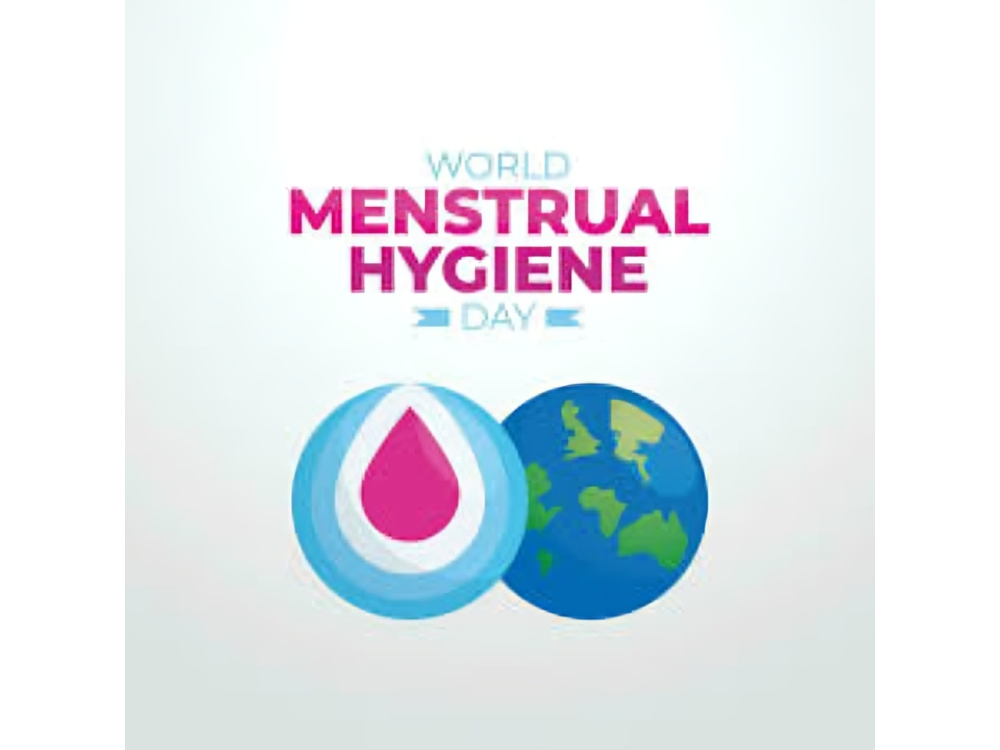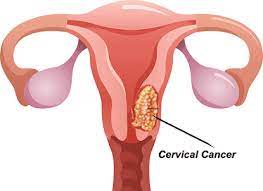Health
Bleeding After Intercourse May be Sign of Cervical Cancer— Prof. Adewole

Prof. Isaac Adewole, a former minister of health, Nigeria, says many people are unaware that contact bleeding especially during bleeding or just after sexual intercourse can be early sign of cervical cancer.
Adewole, Co-Founder, African Cancer Coalition, told in Lagos on Thursday in a telephone interview that cervical cancer was preventable and treatable , if presented and diagnosed early.
According to the World Health Organisation (WHO) cervical cancer is still the second most common cancer among women in Nigeria and the fourth most common cancer among women globally.
It is the most common among women ages 15-44 years, claiming 7,900 women’s lives each year from the 12,000 cases reported in Nigeria.
Adewole said: “The challenge in Nigeria, just like the challenge in Africa and many developing countries, is that a lot of people are largely unaware of the situation with cervical cancer.
“Therefore, when they present to the hospitals, they present largely in advanced stage, for quite a number of reasons
“One, they are not aware of the symptoms of early stages which include contact bleeding especially during bleeding or just after sexual intercourse.
“What most women with such incidents usually do is to stay away from their men believing that the bleeding was caused by the man.
“They probably thought it was due to trauma, and some form of injury. And interestingly, when they do that, they bleeding will stop but the disease will continue to progress.
“So, by the time they will have a resurgence of the disease in terms of symptoms, the disease will be far advanced.’’
Adewole, a Professor at University of Ibadan and Northwestern University, said: “So, you have these women moving from one care giver to the other and healing homes to another.
“By the time they finally present at the final destination, maybe a Teaching Hospital, or a private facility manned by a Specialist, the disease would be advanced, and at that stage, it is beyond cure.’’
The former minister of health said about 80 per cent of cases of cervical cancer presented were in advanced stages, and that many healthcare practitioners also missed some of these early signs/stages of cervical cancer.
Adewole told that the trajectory of late presentations could be moved to either no presentation at all or early presentation.
He said that according to the WHO, symptoms of early-stage cervical cancer might include: “Irregular blood spotting or light bleeding between periods in women of reproductive age.
“Postmenopausal spotting or bleeding, bleeding after sexual intercourse; and increased vaginal discharge, sometimes foul smelling.’’
On the causes of cervical cancer, the WHO says, two Human Papilloma Virus (HPV) types (16 and 18) were responsible for nearly 50 per cent of high grade cervical pre-cancers
HPV is mainly transmitted through sexual contact and most people were infected with HPV shortly after the onset of sexual activity.
No fewer than 90 per cent of them cleared the infection eventually and Cervical cancer could be cured if diagnosed at an early stage and treated promptly.
Proffering some solutions, Adewole said a new research on the efficacy of a one-dose HPV vaccine regimen was among several of the factors that could prevent and bring the world closer to eliminating cervical cancer.
He urged increased sensitisation on the disease by governments and stakeholders.
He encouraged that HPV vaccine be given to young girls from ages nine to 14 to prevent them from having the cancer.
He also advised women with symptoms to present early at health facilities for diagnosis.
NAN reports that Adewole is among the 12 leading health experts from around the world moving the powerful call to action in the fight against cervical cancer through The Global Declaration to Eliminate Cervical Cancer.
The declaration was formally launched at the World Health Assembly in Geneva on May 22, 2023, with signatures from more than 1200 global health leaders and advocates representing over 100 countries.
Top among them included former Prime Minister of New Zealand Jacinda Ardern, CEO of Amref Health Africa, Githinji Gitahi; President of the International Federation of Obstetrics and Gynecology (FIGO) Jeanne Conry, and President-elect of the International Pediatric Association Naveen Thacker. (NAN)
Health
Stakeholders Call for Better Menstrual Hygiene To Boost Health

Stakeholders have stressed the need for increased awareness and improved practices around menstrual hygiene, particularly to support better health outcomes and dignity for girls in underserved communities.
They made the call on Wednesday in Abuja ahead of the 2025 Menstrual Hygiene Day, commemorated globally every May 28 to address inequalities in menstrual health and hygiene.
The event was organised by Tabitha Cumi Foundation (TCF) under its Always Keeping Girls in School (AKGIS) project, with support from Charities Aid Foundation (CAF America).
Mrs Tayo Erinle, Executive Director of TCF, said menstrual hygiene remained a critical yet often overlooked aspect of reproductive health, especially among adolescent girls.
“Many girls live in households where no one provides sanitary pads or pays attention to that part of their lives.
“It happens monthly, and every girl deserves dignity and support,” she said.
Erinle added that more than 1,600 marginalised girls across 32 junior secondary schools in the FCT, Lagos, and Benue states were empowered through puberty education and menstrual hygiene management under the AKGIS project.
She said beneficiaries also received a one-year supply of Always sanitary pads and emergency kits.
“The project has boosted the girls’ confidence.
“Menstruation was once shrouded in secrecy, stigma, and confusion for many. Now, with access to correct information and education, they feel empowered,” she added.
Dr Adedolapo Fasawe, Mandate Secretary for the Health Services and Environment Secretariat, emphasised the importance of educating youths on reproductive health.
Represented by Dr Ruqayya Wamakko, Executive Secretary of the FCT Primary Health Care Board, she called for more sensitisation efforts to encourage young people to use health services in primary health centres.
“We give health talks, visit schools, form school clubs, and teach students how to care for themselves, maintain personal and menstrual hygiene, and stay safe,” she noted.
Mrs Nwakonye Onyirechi, Assistant Chief Investigative Officer in the Women and Children Department of the National Human Rights Commission (NHRC), reiterated the commission’s commitment to protecting the rights of the girl child.
“We go to schools to sensitise girls to their rights and encourage them to speak up when their rights are violated,” she said.
Dr Safiya Tamanuwa, Deputy Director of the Placement and Gender Unit at the Universal Basic Education Commission (UBEC), commended TCF for its support toward improving the health and well-being of schoolgirls.
Highlights of the event included the distribution of sanitary pads and kits, a literary presentation, and expert-led health talks.(NAN)
Health
Group urges Nigerians to embrace healthy habits to prevent diseases

The Society of Lifestyle Medicine of Nigeria (SOLONg) has advised Nigerians to embrace healthy preventive lifestyle habits to prevent the root causes of chronic and lifestyle-related diseases.
The President of SOLONg, Dr Moyosore Makinde, gave the advice in an interview in commemoration of the “Global Lifestyle Medicine Week” on Tuesday in Lagos.
NAN reports that the Global Lifestyle Medicine Week, taking place from May 18 to May 24, 2025, has the theme “Celebrating Healthy Habits: Inspire Change with D.
R.E.A.M.S.”Makinde, also an International Board-certified Lifestyle Medicine Physician, said the week was dedicated to raising awareness about the transformative power of lifestyle medicine in improving health outcomes and reducing the burden of chronic diseases worldwide.
According to her, lifestyle medicine empowers people to live healthier, happier and longer lives.
She explained that the D.R.E.A.M.S. acronym highlighted the six key pillars of lifestyle medicine that guide individuals toward healthier lives namely: Predominantly plant-based Diets, positive Relationships or social connections, Exercise, Avoidance of toxic substances, Mental wellness and stress management, and restorative Sleep.
She said that these pillars had been proven by scientific research to not only manage and prevent chronic diseases like coronary heart disease, diabetes, dementia and Alzheimer’s but also to promote a more sustainable and harmonious relationship with ourselves and with our planet.
Makinde added that it contributed to planetary health and the stability of our ecosystem.
“SOLONg is proud to announce its participation in Global Lifestyle Medicine Week, taking place from May 18 to May 24, 2025.
“Scientific studies, including numerous randomised clinical trials and longitudinal studies, have consistently shown the remarkable benefits of lifestyle interventions in reducing the incidence of chronic conditions.
“Additionally, these healthy habits play a pivotal role in strengthening resilience against infectious diseases.
“The ongoing impact of several pandemics has underscored the importance of adopting healthy behaviours, as poor lifestyle choices have been associated with worse disease severity and slower recovery times,” she said.
Contributing, the General Secretary of SOLONg, Dr Chika Anozie, said that Global Lifestyle Medicine Week aimed to foster a community of like-minded individuals and healthcare professionals committed to lifestyle medicine.
Anozie, also a Family Physician, said that SOLONg would organise various activities to mark the week, including a Webinars and educational workshops on lifestyle medicine topics.
She added that there would be courtesy visits and community outreach programmes promoting healthy habits, as well as social media campaigns sharing lifestyle medicine tips and resources.
“As we observe Global Lifestyle Medicine Week, it is clear that the need for Lifestyle Medicine is greater than ever.
“This is a clarion call for the government to create policies that promote healthy lifestyle practices while restricting behaviours that contribute to disease.
“We urge medical institutions to prioritise the accreditation of Lifestyle Medicine programs at both undergraduate and postgraduate levels.
“It is equally important that health professionals receive the proper training to effectively communicate these life-saving messages to the public.
“The Society encourages individuals to embrace the principles of healthy living, which are not only lifechanging but also long-lasting,” she said.(NAN)
Health
NAFDAC Clarifies Sachet Alcohol Ban Timeline

The National Agency for Food and Drug Administration and Control (NAFDAC) has clarified its stance regarding the nationwide ban on sachet alcohol.
Mr Kenneth Azikiwe, Director of the FCT Directorate of the agency, in an interview on Monday in Abuja that the temporary lifting of the ban was only valid until Dec.
31, 2025.He emphasised that the recent ministerial lifting of the ban was not permanent and urged the public to disregard misinformation suggesting that the government had permanently lifted the restriction.
“There is a ministerial lifting on the ban of sachet alcohol, but it is only temporary and will be reviewed by Dec. 31, 2025.
“After this date, the full enforcement of the ban will commence.
“The minister granted this temporary relief to allow manufacturers and regulators time to collaborate and ensure a more structured and effective implementation of the ban,” Azikiwe stated.”
He highlighted NAFDAC’s ongoing efforts to sensitise the public across the country, noting that awareness campaigns had reached every state.
“We have sensitised distributors, and we’ve emphasised that alcohol should not be sold to individuals under the age of 18, which is also clearly indicated on product labels,” he added.
Azikiwe also commended the Distillers and Beverages Association of Nigeria (DIBAN) for supporting the awareness drive.
He reassured the public that NAFDAC remained fully committed to regulating alcohol consumption and reiterated that sachet alcohol products containing less than 200 milliliters would be phased out after Dec. 2025.(NAN)
























